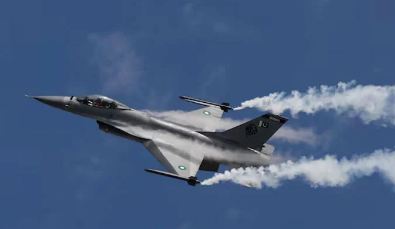LAHORE, OCT 22 /DNA/ – Panelists at a round-table discussion have examined the objectives behind strikes in Afghanistan, which were framed as a necessary demonstration of Pakistan’s resolve not to tolerate terrorism from Afghan soil.
The experts also delved into the complex internal dynamics of the Taliban regime, identified as a key obstacle to resolving the TTP issue.
Panelists agreed that the economic fallout is disproportionately severe for landlocked Afghanistan, which relies on Pakistan for 80% of its trade. However, a significant political risk for Pakistan is the potential for Afghanistan to move closer to India, creating a strategic ‘sandwich’ effect.
On the way forward, the panel emphasized the urgent need for confidence-building measures (CBM), such as reopening border crossings to alleviate economic hardship on both sides.
The recently brokered Doha agreement, with Qatar and Turkey as guarantors, was cited as a potentially more effective mechanism for mediation and dialogue.
Furthermore, panelists stressed that Pakistan must develop a long-term, coherent border management policy and engage with a broader spectrum of Afghan society, including the Afghan diaspora, and move beyond an exclusive reliance on the Taliban.
The implications of the ongoing tensions were analyzed from both economic and geopolitical angles.
The Beaconhouse National University (BNU) Center for Policy Research (BCPR) hosted a critical roundtable discussion titled “Pakistan-Afghanistan Escalation: Causes, Implications and Way Forward.” The event convened leading experts on Afghanistan-Pakistan relations to dissect the unprecedented downturn in relations between the two neighboring nations and to explore viable pathways toward de-escalation and sustainable dialogue.
The discussion, facilitated by Ambassador Mansoor Ahmad Khan, Director of BCPR, featured insights from prominent panelists, including Dr. Tahir Kamran, Dean School fo Liberal Arts & Social Sciences at BNU, journalists Mr. Tahir Khan and Mr. Hassan Khan, who have extensive experience covering Afghanistan, and Dr. Syed Hussain Shaheed Soherwordi, professor of International Relations, from the University of Peshawar. The dialogue centered on the severe tensions that have escalated since the Taliban’s return to power in Kabul in August 2021, with a primary focus on the critical issue of cross-border terrorism perpetrated by groups like the Tehreek-e-Taliban Pakistan (TTP), according to a BCPR’s press release.
A central theme of the roundtable was the debate over Pakistan’s recent military actions.
Dr. Soherwordi pointed to internal divisions within the Taliban, between the liberal Haqqani Group and the conservative Kandhari Group, and their fear that acting against the TTP could push its members to join the more ruthless Islamic State Khorasan Province (ISKP). This internal ‘Catch-22’ situation, as described by Hassan Khan, severely limits the Taliban’s capacity or willingness to rein in the TTP.
Mr. Tahir Khan provided context on the growing India-Taliban engagement, noting that certain statements made by Afghan officials in India had crossed Pakistan’s ‘red lines.’
Dr. Kamran added a broader regional perspective, pointing out that Pakistan currently struggles with poor relationships with all its neighbors except China.
In conclusion, the roundtable underscored the profound challenges and high stakes in the Pakistan-Afghanistan relationship. While Pakistan’s military action has signaled a new strategic clarity, a sustainable solution will require a multifaceted approach combining informed diplomacy, regional engagement, particularly from key partners like China, and a deeper, more nuanced understanding of Afghanistan’s complex political and cultural landscape.

















